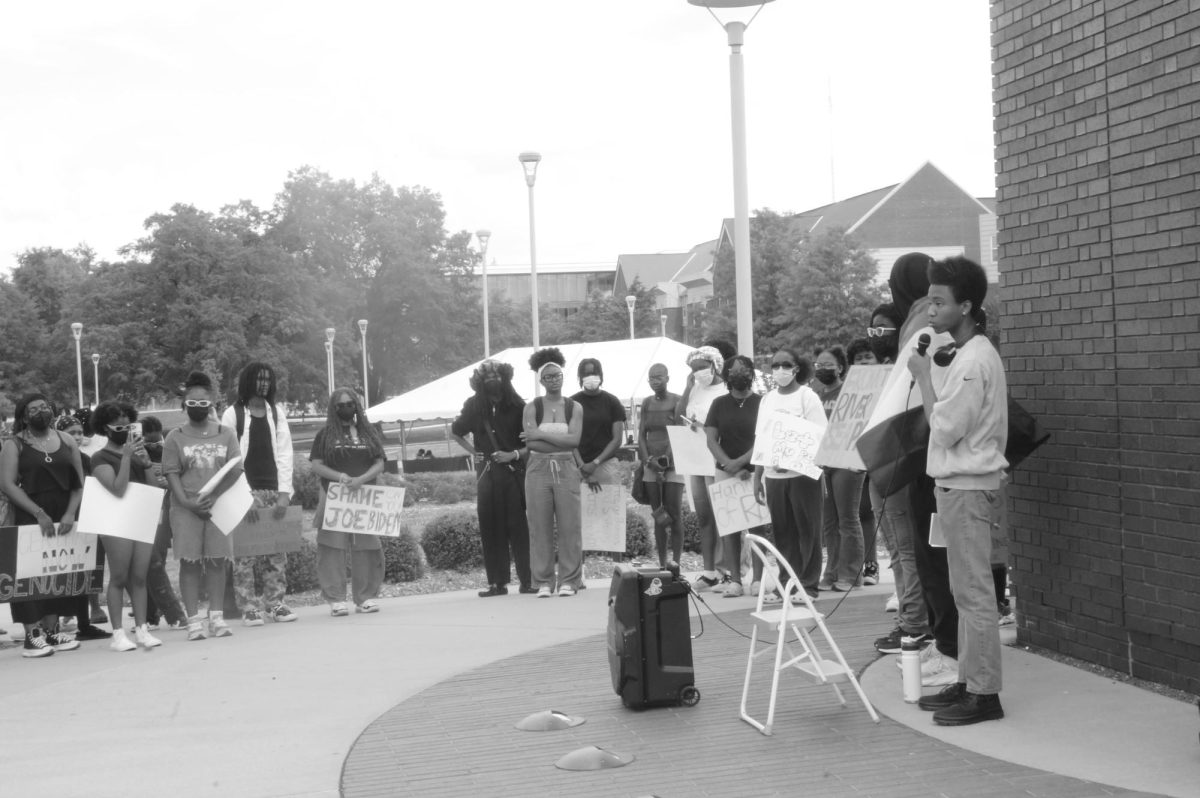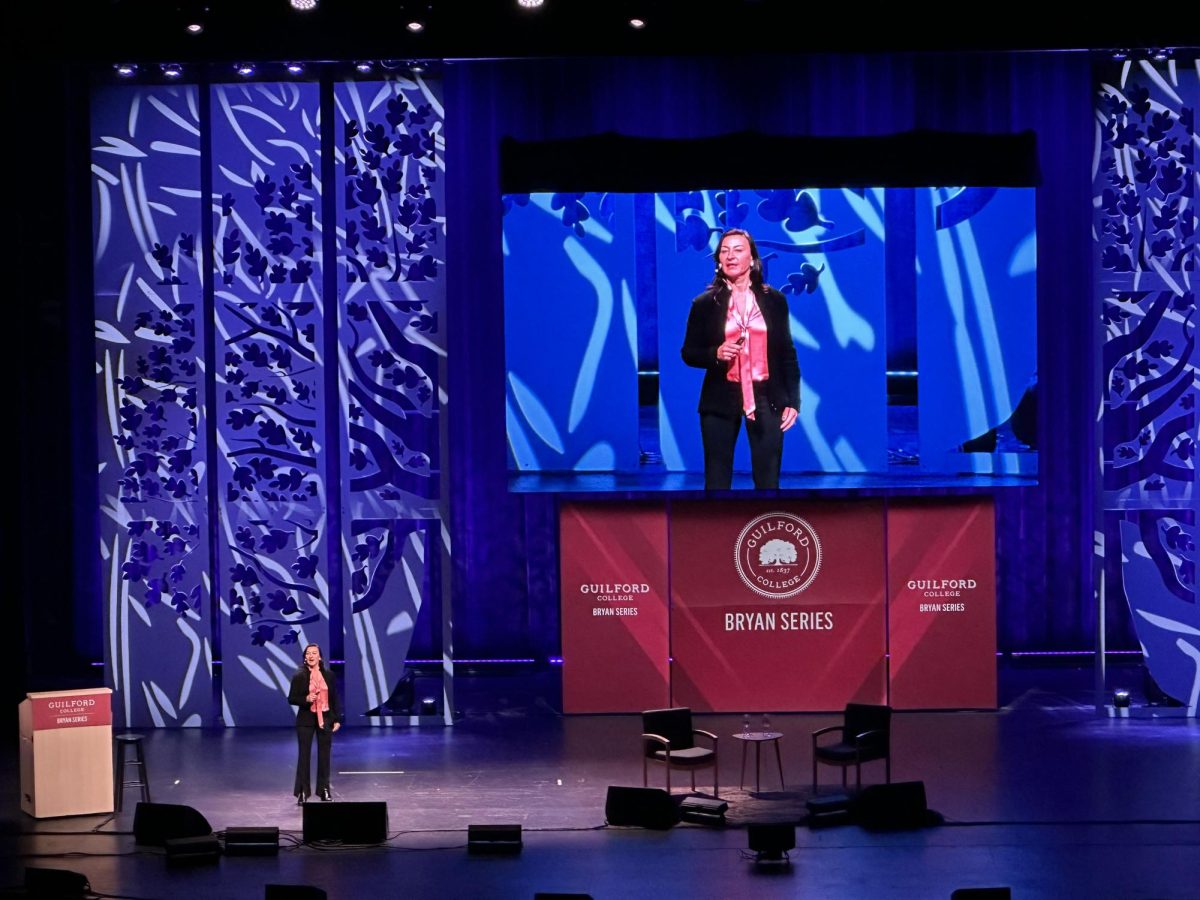Julie Winterich, associate professor of sociology and anthropology, was researching women’s salaries in higher education when she came across some interesting information regarding Guilford faculty salaries.
Guilford faculty and staff are some of the lowest paid in the industry.
Winterich found that Guilford’s faculty and staff salaries ranked rock bottom when compared to colleges and universities that have similar endowment sizes.
For example, Guilford assistant professors make an average of $52,000, while the average in North Carolina colleges and universities is $64,000. Guilford associate professors average $57,000 compared with the state average of $76,000. Full professors at Guilford average $71,000 a year while the average in North Carolina is $112,000.
Average faculty salaries have increased from the 20th percentile to the 36th over the last decade. However, the Strategic Long Range Plan I set a goal for faculty salaries to reach the 50th percentile.
Average administrative salaries for presidents at similar colleges are $410,000 while Kent Chabotar receives $474,000 a year.
Winterich’s information alongside data already reviewed by faculty regarding their pay rate propelled Bob Williams, professor of economics, and Robert M. Whitnell, professor of chemistry, to send a memo to the board of trustees and the budget committee for review.
The fact that Guilford pays its professors less than most colleges and universities is not new. Historically, the local American Association of University Professors chapter has worked on the faculty salary disparity for some time now.
According to Williams, the faculty compensation report was the work of Garland Granger, Jack Zerbe, Rob Whitnell and himself.
“A faculty forum on the original Faculty Compensation Report perhaps a year ago was very heavily attended,” said Williams.
Winterich’s research has just begun.
“As part of that work, we’re looking at institutional data on possible gender issues for a variety of topics and not just for faculty, for all employees,” said Winterich. “This is the first part of data we have put together on salaries, which is public information and easy to assemble.”
Kent Chabotar, president and professor of political science, told The Guilfordian that though he has not seen the memo given to the board of trustees and budget committee or Winterich’s data, the faculty is his priority, budget allowing.
“The faculty-led budget committee and I have been quite clear that if the College budget exceeds the ‘worse case’ scenario for 2013–14, employee compensation is the number one priority, either as one-time bonuses, ‘middle case’, or continuing increases, ‘better case,’” said Chabotar.
“Whatever funds are available will be apportioned among the faculty, administrative staff and support staff based on how far each group is behind the 50th percentile target in its respective marketplace,” said Chabotar. “Since the faculty are furthest behind their targets, they will get most of the money.”
According to Williams, who is a former chairperson of the budget committee, there is no easy answer.
“Faculty salary increases can only come from a limited number of revenue sources, none of which are easily increased and all of which have budgetary claims on their dollars,” said Williams. “(Without) additional revenues, increased salaries can only come from reduced expenditures in other areas. Knowing whether and where such reductions might responsibly come from requires a detailed understanding of college budgets.”
Williams said that his joint memo did not have a recommendation because he trusts the budget committee to review the collective information and make suggestions.
“The membership of the budget committee includes a diverse slice of our community including students, staff, faculty and administrators,” said Williams. “It also includes key college personnel who have a detailed understanding of the college’s budgets and its varied operations.”
“Rob (Whitnell) and I are deeply worried that the lagging salaries will diminish morale and encourage turnover,” said Williams. “We believe that morale operates like trust. Once it is lost, it is very difficult to regain.”







Lindsey Aldridge • May 14, 2013 at 11:51 am
Is no one else incensed that Kent Chabotar makes $64,000 higher than the average president of schools like Guilford while all of our professors make less than average? That difference is nearly equivalent to the full salary of a full professor. We’re constantly letting go of beloved faculty and staff who make under the average salary for their positions, while one individual—at our “Quaker” school—makes enough to put him into the top 1% of earners in the country. It makes me sick.